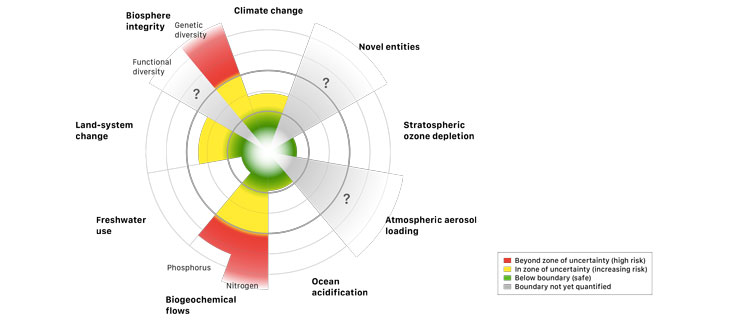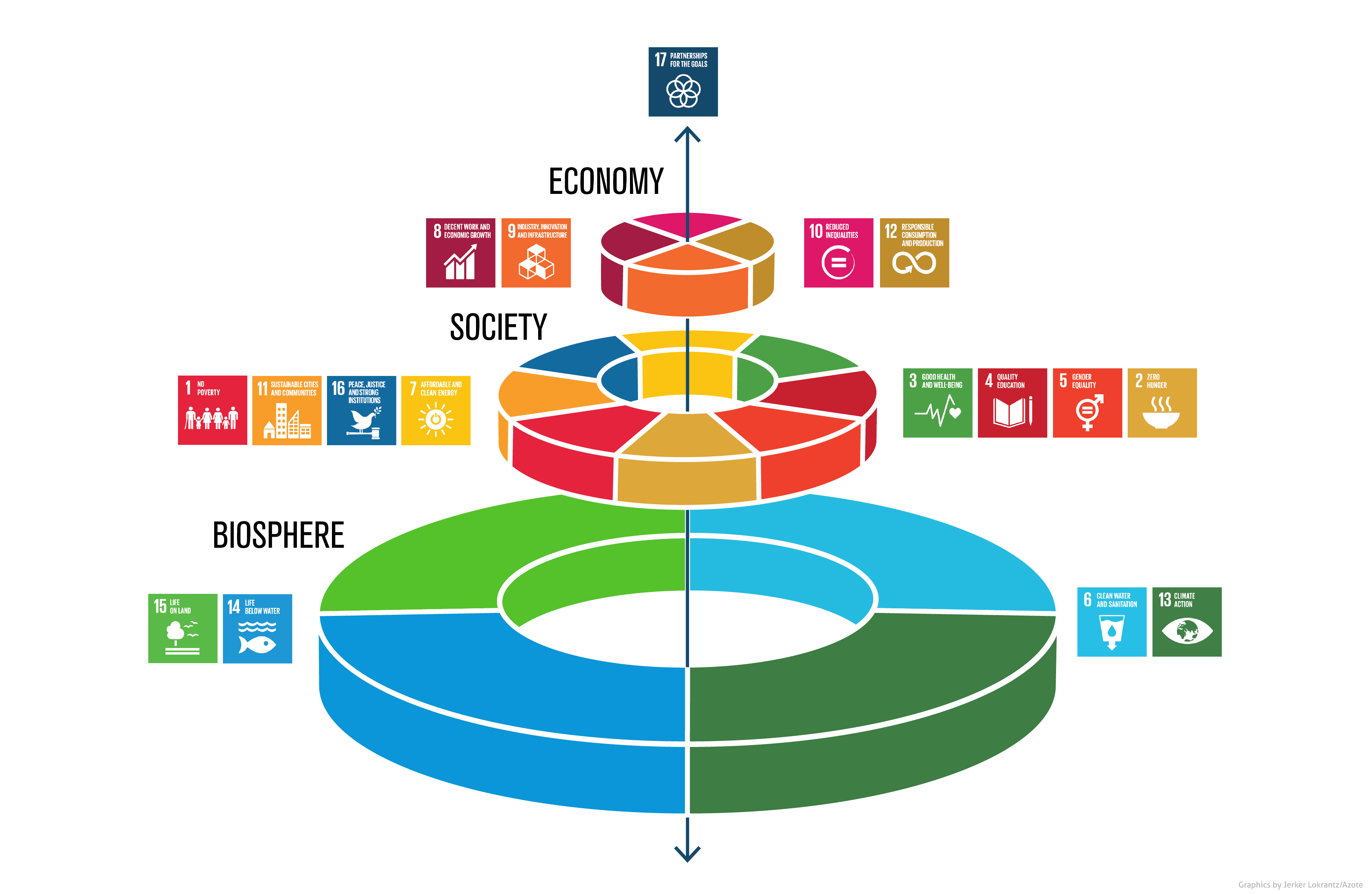Bottom-Up Urban Development – What does Transition actually do?
VHS Bonn Lecture & Workshop
Bottom-Up Urban Development – What does Transition actually do?
![]()
Speaker
- Gesa Maschkowski
- Bonn University, Department of Agricultural and Food Market Research
- Christiane Kliemann
- free journalist focusing on post-growth economics, alternative economics and social change
- formerly employed at UNFCC and Deutsche Welle
![]()
Planetary Boundaries
By transgressing planetary boundaries, the safe operating space for humans, we might reach an unrecoverable level of damage that the Earth System can not recover from and eventually turns it into a less or even completely un-hospitable space.

By Stockholm Resilience Centre
Stockholm Resilience Centre, the originator of the concept of the nine planetary boundaries, also proposes a model to mitigate the effects of the Anthropocene. This model, focusing on how the Sustainable Development Goals are linked to food, aligns all social, economic, and ecological development accordingly to operate within the safe operating space of the planet to serve society.

By Stockholm Resilience Centre
Jevons Paradox
One might question why despite the constantly improving sustainability and efficiency of technological innovations reaching planetary boundaries could not have been stopped. To some extent, the answer is Jevons Paradox, also called the Rebound Effect, that asserts that: increasing energy efficiency forces energy consumption to increase, too.
However, as Jevons Paradox is decidedly only a micro issue and lacks to take factors completely unrelated to increases in energy efficiency as a causal factor into account, it cannot explain this phenomenon on its own. More information on when Jevons Paradox can and cannot be used to explain increases in energy consumption can be read here.
Personal Responsibility
Only a civil society that questions the status quo, self-organizes and takes active steps to set an example for and demands from politics and companies, both public and private, to rectify social or environmental injustices can bring about an effective systematic change. For economy, as an example, this could imply to place humanity and the individual back at the center of economic activities and decision making.
Historical examples of the power of the masses to change deep rooted injustices are the Women’s Right Movement and the anti-nuclear and environmental movement. Without them, no change in the course of politics and development of society as a whole would have taken place.

By J. Howard Miller (1918–2004), artist employed by Westinghouse, poster used by the War Production Co-ordinating Committee – From scan of copy belonging to the National Museum of American History, Smithsonian Institution, retrieved from the website of the Virginia Historical Society., Public Domain, Link
Cornerstones of Transition Towns
For a city to successfully become more sustainable and just, it was proposed for individual initiatives to build on eight cornerstones:
- Reaching people
- Positive vision
- Implementable projects
- Group culture
- Appreciate and cherish
- Local environment and context
- Network and partner
- “Heart”
Regional Examples from Bonn
In the City of Bonn a considerable and especially thematically diverse amount of groups concerned with transition exist. Just to name a few, they include groups concerned with road safety and justice (Critical Mass Bonn), Foodsharing, Repair Café, a community-supported agriculture initiative (SoLaWi Bonn), center for urban justice and community development projects (Recht auf Stadt) and strong networking and organisation initiative (Bonn im Wandel). Staying true to the cornerstones of Transition Towns they are well connected and their noticeable joyful team-spirit leads to new ideas on how to further Bonn’s transition emerge constantly.
![]()
- Event Website
- Stockholm Resilience Centre
- Critical Mass Bonn
- Foodsharing
- Repair Café
- SoLaWi Bonn
- Recht auf Stadt
- Bonn im Wandel



